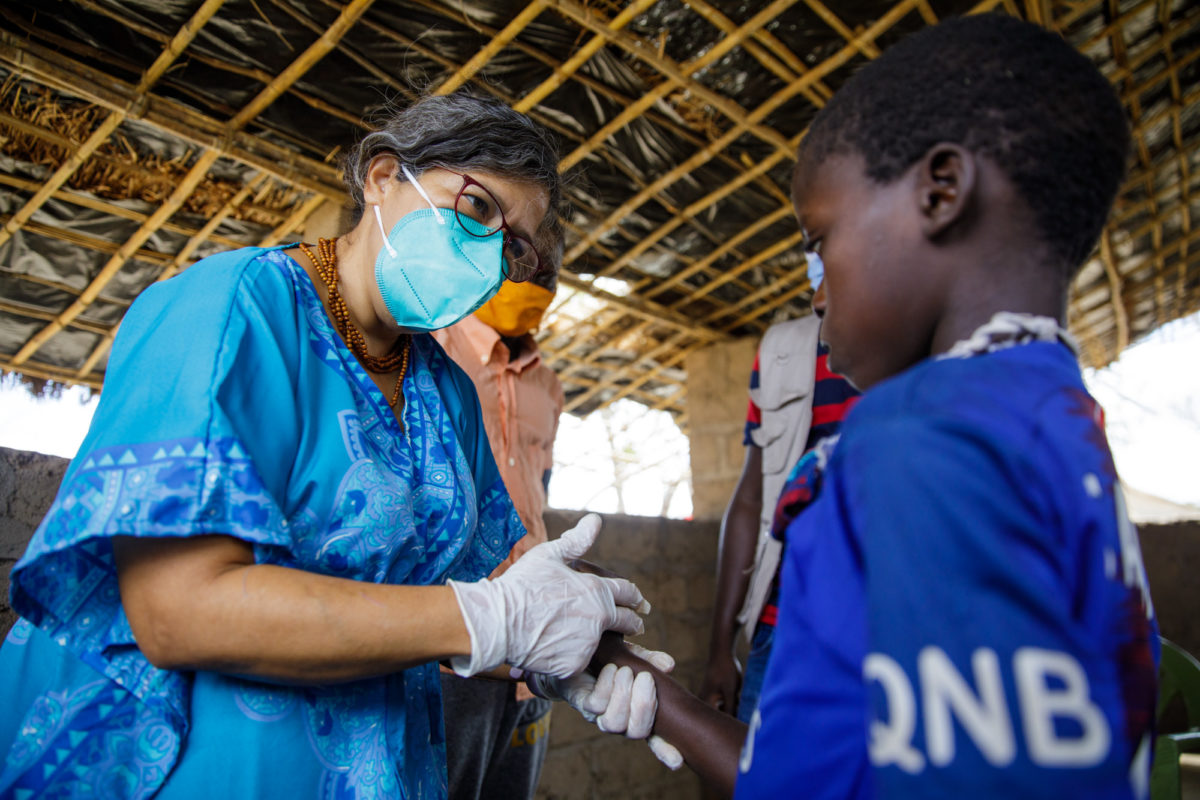1 November 2021 · Global Partnership for Zero Leprosy
The Mozambique Review: Q&A with Dr. Maria de Jesus Freitas de Alencar

Dr. Maria de Jesus joined the Global Partnership for Zero Leprosy review team in Mozambique last month. She shares her experience conducting the review of leprosy activities alongside the National Leprosy Programme in Nampula Province.
Can you describe your role as a member of the review team?
I came to Mozambique to immerse myself in the National Leprosy Programme’s activities throughout the country, in collaboration with provincial and district supervisors. The objective was to support them in diagnosing the leprosy situation in the country and to accompany them in the intervention in the communities, in the diagnosis of how the programme is working, how the patients are assisted, and how the provincial and district governments are working. Together we formed a multi-professional team with members of the Ministry of Health from the provinces and districts. We went into the field for a fortnight and in the third week, we presented the results of this great work completed in three regions of the country. At the end of the mission, stakeholders built an action plan that will guide efforts toward zero leprosy in the coming years.
How will the Zero Leprosy Country Model support Mozambique in reaching zero leprosy?
The idea is first to have a diagnosis of the situation and then to design the strategic plan for the coming years in a phased manner, for one, three, and ten years. The Global Partnership for Zero Leprosy has been asked for support to be able to design this new plan.
What strengths have you observed in Mozambique?
I have learned a lot from the attitude of the Mozambican government, which has opened its doors for us to go into the field to find out what is really happening and later work together on a plan. I found a motivated team, willing to learn and open to identifying problems. Having partnerships with non-governmental organizations is a very strong point. Without these partnerships, the work would be much more difficult.
What have you learned from the review process?
My field experience in Brazil has shown that it is through identifying the problems on the ground at the primary level that it is possible to design proposals with the research results. Then, share with managers and work towards improvement from the local reality. Knowing the terrain, knowing the local reality, is the way to a better plan.
We see how we can support the professionals who are in the care network so that they can offer higher quality services. The whole process of the program review is an educational process. It is not just arriving and collecting information and data. At the same time as information is collected, an educational process also takes place. The consultants learn and the local health technicians learn. It’s collective growth.